1. Environmental Protection
One of the primary reasons to build lead-free and RoHS compliant PCB assemblies is to protect the environment. Lead is a toxic substance that can cause significant harm to the ecosystem when released into the environment. By using lead-free components, manufacturers can reduce the amount of lead that ends up in landfills and waterways, helping to preserve the planet for future generations.
The Impact of Lead on the Environment
Lead is a highly toxic metal that can cause serious environmental damage when not properly disposed of. When lead-containing electronic products end up in landfills, the lead can leach into the soil and groundwater, contaminating the surrounding environment. This contamination can have far-reaching effects on plants, animals, and even human health.
The Benefits of Lead-Free PCB Assembly
By switching to lead-free PCB assembly, manufacturers can significantly reduce the environmental impact of their products. Lead-free solder and components are less harmful to the environment when disposed of, and they can be recycled more easily than their lead-containing counterparts. This not only helps to protect the environment but also promotes a more sustainable approach to electronics manufacturing.
2. Health and Safety
Another crucial reason to build lead-free and RoHS compliant PCB assemblies is to protect the health and safety of workers and consumers. Lead exposure can cause a range of health problems, including neurological disorders, reproductive issues, and even cancer. By eliminating lead from the manufacturing process, companies can create a safer working environment for their employees and ensure that their products are safe for consumers to use.
The Health Risks of Lead Exposure
Lead exposure can occur through inhalation, ingestion, or skin contact, and it can have serious health consequences. Some of the most common health problems associated with lead exposure include:
- Neurological disorders, such as learning disabilities and behavioral problems
- Reproductive issues, including infertility and miscarriage
- Cardiovascular disease
- Kidney damage
- Cancer
The Importance of a Safe Working Environment
Creating a safe working environment is essential for any electronics manufacturer. By using lead-free components and implementing proper safety protocols, companies can protect their workers from the harmful effects of lead exposure. This not only helps to ensure the well-being of employees but also reduces the risk of costly legal issues and negative publicity.
3. Compliance with Regulations
Building lead-free and RoHS compliant PCB assemblies is not just a matter of choice; it is also a legal requirement in many countries. The RoHS directive, which was first introduced in the European Union in 2006, restricts the use of six hazardous substances in electronic products, including lead. Since then, many other countries have implemented similar regulations, making compliance a top priority for electronics manufacturers.
| Region/Country | Regulation | Year Implemented |
|---|---|---|
| European Union | RoHS | 2006 |
| China | China RoHS | 2007 |
| California, USA | CalRoHS | 2007 |
| South Korea | K-RoHS | 2008 |
| Japan | J-MOSS | 2006 |
The Consequences of Non-Compliance
Failure to comply with RoHS and other lead-free regulations can result in severe consequences for electronics manufacturers. Non-compliant products may be banned from certain markets, leading to lost sales and revenue. In addition, companies may face hefty fines and damage to their reputation if found to be in violation of these regulations.
The Benefits of Compliance
On the other hand, building lead-free and RoHS compliant PCB assemblies can provide numerous benefits for manufacturers. Compliance not only ensures access to regulated markets but also demonstrates a commitment to environmental and social responsibility. This can help to enhance a company’s reputation and attract environmentally conscious consumers.

4. Improved Reliability
Lead-free PCB assemblies are not only better for the environment and human health; they also offer improved reliability compared to their lead-containing counterparts. Lead-free solder joints have been shown to have better mechanical strength and thermal stability, which can help to reduce the risk of failure in electronic products.
The Advantages of Lead-Free Solder
Lead-free solder, such as tin-silver-copper (SAC) alloys, offers several advantages over traditional lead-based solder:
- Higher melting point, which improves thermal stability
- Better mechanical strength, which reduces the risk of joint failure
- Improved resistance to fatigue and creep, which enhances long-term reliability
The Benefits of Improved Reliability
By using lead-free solder and components, manufacturers can create PCB assemblies that are more reliable and durable. This can help to reduce the risk of product failure and minimize the need for costly repairs or replacements. In addition, improved reliability can enhance customer satisfaction and loyalty, leading to increased sales and revenue.
5. Enhanced Product Longevity
In addition to improved reliability, lead-free PCB assemblies also offer enhanced product longevity. The use of lead-free components can help to extend the lifespan of electronic products, reducing the need for frequent replacements and minimizing electronic waste.
The Lifespan of Lead-Free Products
Studies have shown that lead-free electronic products can have a longer lifespan than their lead-containing counterparts. This is due in part to the improved mechanical and thermal properties of lead-free solder, which can help to prevent joint failure and other issues that can shorten product life.
The Benefits of Enhanced Product Longevity
Enhanced product longevity offers several benefits for both manufacturers and consumers. For manufacturers, longer-lasting products can help to reduce warranty claims and minimize the need for costly replacements. For consumers, products with a longer lifespan can provide better value for money and reduce the environmental impact of electronic waste.
6. Competitive Advantage
Building lead-free and RoHS compliant PCB assemblies can also provide a competitive advantage for electronics manufacturers. As environmental awareness grows, consumers are increasingly seeking out products that are eco-friendly and socially responsible. By offering lead-free and RoHS compliant products, manufacturers can differentiate themselves from competitors and appeal to environmentally conscious consumers.
The Growing Demand for Eco-Friendly Products
Consumers are becoming increasingly aware of the environmental impact of the products they buy. A recent survey found that 73% of global consumers are willing to change their consumption habits to reduce their environmental impact. This growing demand for eco-friendly products presents a significant opportunity for electronics manufacturers that can offer lead-free and RoHS compliant products.
The Benefits of a Green Reputation
By building a reputation as an environmentally responsible manufacturer, companies can attract new customers and enhance their brand image. This can lead to increased sales, customer loyalty, and positive word-of-mouth marketing. In addition, a green reputation can help to attract top talent and improve employee morale, as workers increasingly seek out employers that share their values.
7. Cost Savings
While the transition to lead-free PCB assembly may require an initial investment, it can ultimately lead to cost savings for manufacturers. The use of lead-free components can help to reduce the cost of compliance with environmental regulations, as well as minimize the risk of costly fines and legal issues.
The Costs of Environmental Compliance
Complying with environmental regulations can be a significant expense for electronics manufacturers. The costs of testing, documentation, and disposal of hazardous substances can add up quickly, eating into profits and reducing competitiveness. By using lead-free components, manufacturers can reduce the cost of compliance and streamline their environmental management processes.
The Potential for Long-Term Savings
In addition to reducing the cost of compliance, lead-free PCB assembly can also lead to long-term cost savings. The improved reliability and longevity of lead-free products can help to reduce warranty claims and minimize the need for costly repairs or replacements. Furthermore, the use of lead-free components can help to reduce the cost of recycling and disposal at the end of a product’s life.
8. Meeting Customer Requirements
Many customers, particularly in the industrial and military sectors, have specific requirements for lead-free and RoHS compliant products. Building PCB assemblies that meet these requirements can help manufacturers to win new business and maintain existing customer relationships.
The Importance of Customer Requirements
Customers in certain industries may have strict requirements for the use of lead-free and RoHS compliant components. For example, the military and aerospace sectors often require the use of lead-free solder to ensure the reliability and durability of electronic systems. Similarly, medical device manufacturers may require lead-free components to comply with safety and regulatory standards.
The Benefits of Meeting Customer Requirements
By building lead-free and RoHS compliant PCB assemblies, manufacturers can demonstrate their commitment to meeting customer requirements. This can help to build trust and loyalty among customers, leading to increased sales and long-term business relationships. In addition, meeting customer requirements can help manufacturers to avoid costly delays or rejections due to non-compliance.
9. Preparing for Future Regulations
While the RoHS directive and other lead-free regulations have been in place for several years, it is likely that environmental regulations will continue to evolve in the future. By building lead-free and RoHS compliant PCB assemblies now, manufacturers can prepare for future regulations and avoid the need for costly redesigns or retrofits.
The Likelihood of Future Regulations
As environmental awareness continues to grow, it is likely that governments around the world will introduce new regulations to reduce the use of hazardous substances in electronic products. These regulations may include stricter limits on the use of lead and other substances, as well as new requirements for product testing and documentation.
The Benefits of Being Prepared
By building lead-free and RoHS compliant PCB assemblies now, manufacturers can position themselves to meet future regulatory requirements. This can help to avoid the need for costly redesigns or retrofits, which can be time-consuming and expensive. In addition, being prepared for future regulations can help manufacturers to maintain their competitive edge and avoid potential supply chain disruptions.
10. Corporate Social Responsibility
Finally, building lead-free and RoHS compliant PCB assemblies is simply the right thing to do from a corporate social responsibility perspective. By prioritizing environmental and social responsibility, manufacturers can demonstrate their commitment to sustainability and ethical business practices.
The Importance of Corporate Social Responsibility
Corporate social responsibility (CSR) is becoming increasingly important for businesses in all industries. Consumers, investors, and other stakeholders are increasingly seeking out companies that prioritize sustainability, ethical business practices, and social responsibility. By building lead-free and RoHS compliant PCB assemblies, manufacturers can demonstrate their commitment to CSR and enhance their reputation as responsible corporate citizens.
The Benefits of Corporate Social Responsibility
Embracing corporate social responsibility can provide numerous benefits for electronics manufacturers. In addition to enhancing their reputation and attracting environmentally conscious customers, CSR can also help to improve employee morale and retention. Studies have shown that employees are more likely to be engaged and committed to their work when they feel that their employer shares their values and is making a positive impact on society.
FAQ
- What is RoHS, and why is it important for PCB assembly?
-
RoHS (Restriction of Hazardous Substances) is a directive that restricts the use of certain hazardous substances, including lead, in electronic products. It is important for PCB assembly because it helps to reduce the environmental and health risks associated with these substances.
-
What are the benefits of using lead-free solder in PCB assembly?
-
Lead-free solder offers several benefits over traditional lead-based solder, including improved mechanical strength, thermal stability, and resistance to fatigue and creep. This can help to improve the reliability and longevity of electronic products.
-
How can building lead-free and RoHS compliant PCB assemblies provide a competitive advantage for manufacturers?
-
By offering lead-free and RoHS compliant products, manufacturers can appeal to environmentally conscious consumers and differentiate themselves from competitors. This can lead to increased sales, customer loyalty, and positive brand recognition.
-
What are the potential cost savings associated with lead-free PCB assembly?
-
While the transition to lead-free PCB assembly may require an initial investment, it can ultimately lead to cost savings by reducing the cost of compliance with environmental regulations and minimizing the risk of costly fines and legal issues. Additionally, the improved reliability and longevity of lead-free products can help to reduce warranty claims and minimize the need for costly repairs or replacements.
-
Why is corporate social responsibility important for electronics manufacturers?
- Corporate social responsibility is becoming increasingly important for businesses in all industries, as consumers, investors, and other stakeholders seek out companies that prioritize sustainability and ethical business practices. By building lead-free and RoHS compliant PCB assemblies, manufacturers can demonstrate their commitment to environmental and social responsibility, enhance their reputation, and attract environmentally conscious customers and employees.
In conclusion, building lead-free and RoHS compliant PCB assemblies is not only a legal requirement in many countries but also a smart business decision for electronics manufacturers. By prioritizing environmental protection, health and safety, compliance with regulations, improved reliability, enhanced product longevity, competitive advantage, cost savings, meeting customer requirements, preparing for future regulations, and corporate social responsibility, manufacturers can create products that are better for the planet, safer for workers and consumers, and more profitable in the long run.
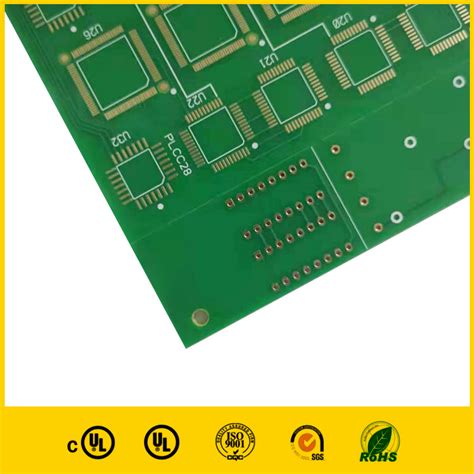
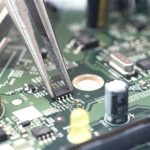
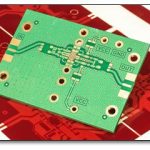
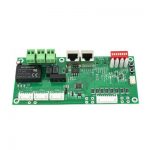
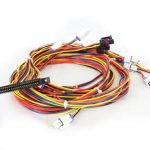

Leave a Reply